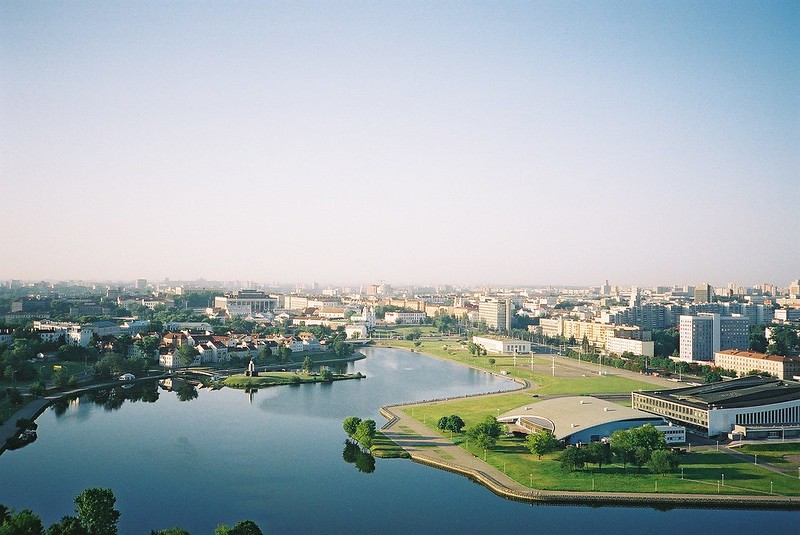Russia is struggling to keep Belarus in its geopolitical orbit. Minsk, on the other hand, is keen on keeping as much of its sovereignty as possible. The two-decade-old alliance between the two countries might start to collapse since Belarus recently refused to host a Russian air base and is not particularly interested in deepening the Russia Belarus Union State integrations.
Presently, the biggest obstacle in Belarus-Russia relations is the fact that the leaders of the two countries cannot break a deadlock over the Union State integration plans. Presidents Vladimir Putin and Alexander Lukashenko recently discussed the future of this entity, but they failed to reach an agreement on key issues such as single currency and gas prices, as well as the common monetary and fiscal policies. In principle, they agreed to deepen integration between Russia and Belarus by December 8, which is the day that will mark twenty years since the Union State Treaty was signed. However, at this point there’s no indication that by then Moscow and Minsk will resolve crucial problems that prevent the further integration process.
Minsk is seeking cheaper gas and oil prices, but at the same time it is trying to keep the status quo in its relations with Moscow. Lukashenko is aware that any concessions to the Kremlin would mean less sovereignty for Belarus, which has successfully been balancing between Russia and the West for decades. The Kremlin, on the other hand, plans to charge Belarus higher prices for Russian oil and gas, and possibly buy some of Belarusian’s more successful companies. The Western powers also have their own interests in Belarus. Most of all, they would prefer to see President Lukashenko ousted but, if that is not possible, they would not mind the Belarusian strongman staying in power – but only if he breaks ties with Russia and comes into the fold with the West.
In September, the US Undersecretary of State for Political Affairs David Hale met with President Alexander Lukashenko as the two sides look to patch up relations. The United States and Belarus are planning to exchange ambassadors after an 11-year freeze. Then the US national security adviser, John Bolton, last month became the most senior US official to travel to Belarus in years. Reportedly, he warned Belarusian President Alexander Lukashenko of “the security threat posed to Belarus by Russia”. Bolton was, most likely, referring to Russian failed plans to build an air base in Belarus. Belarusian officials, on the other hand, said that they see no need for a Russian air base, as such deployment would risk exacerbating regional tensions. Russia demonstrated that it has no mechanisms to force Minsk to host a Russian military aircraft center. Moscow did not even pose the usual empty threats to its neighbors. Instead, Russian Foreign Minister Sergei Lavrov called this refusal “an unpleasant episode“.
In the meantime, Belarus has kept positioning itself as a peacekeeper in the Donbass conflict. President of Belarus Alexander Lukashenko has said Belarus is ready to deploy a peacekeeping mission in the Donbass and take control of a section of the Ukrainian-Russian border that is now beyond the control of the Ukrainian government. If Russia allows such deployment, it will effectively lose control over the self-proclaimed Donetsk People’s Republic and Lugansk People’s Republic, which were established after the Donbass conflict erupted in 2014.
The Kremlin could also lose Belarus as the main ally of all the post-Soviet states. Minsk has been trying to flirt with the West for decades, and any improvements in relationships between Belarus and the West should worry Russia. Since the Union State talks will most likely not lead to any progress, Russian influence in Belarus will keep declining. At the same time, the Western presence will grow, but as long as Lukashenko is in power, he will try to keep a balance between Russia and the West. However, if Russia keeps pressuring Belarus to deepen the Union State integrations in exchange for cheap gas and oil, Lukashenko will most likely try to distance himself from the Kremlin even further. In that case, it remains to be seen how the West will accept the man they once called “the last European dictator”.
Image credit: Nigel Swales

